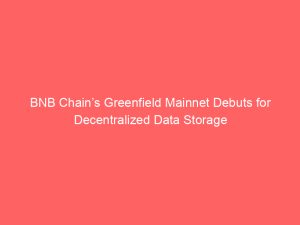

Navigating through the intricate world of cryptocurrencies, Ethereum has firmly established itself not merely as a digital currency but as a multifaceted blockchain platform.
Its digital currency, Ether (ETH), has become one of the most recognized and invested cryptocurrencies in the world. The Ethereum platform, revered for its utility, especially in decentralized finance (DeFi) and non-fungible tokens (NFTs), presents numerous avenues through which individuals and developers alike can explore, innovate, and, crucially, monetize.
Understanding Ethereum and the Importance of an Ethereum Wallet
When traversing the Ethereum network, one of the foundational elements to understand and prioritize is the utilization of a klever ethereum wallet. This digital wallet is not only a secure enclave for storing Ether but also facilitates transactions and interactions with smart contracts on the Ethereum network.
A thorough understanding of Ethereum propels beyond its recognition as a cryptocurrency and introduces a realm where decentralized applications (DApps) and smart contracts pave the way toward innovative financial interactions and investment opportunities.
Investing in Ethereum as an Asset
Ethereum, since its inception, has witnessed a remarkable journey, traversing through minuscule initial coin offering (ICO) prices to reaching astonishing highs in the market.
Investment in Ether as an asset involves a strategy that accommodates its volatility, potential for growth, and the inherent risks associated with cryptocurrency investments. The factors influencing its price, including technological advancements, regulatory shifts, and macroeconomic trends, necessitate meticulous observation and strategic planning to navigate through its investment pathway.
Mining Ethereum: A Mechanism of Rewards and Contributions
Delving deeper into the Ethereum ecosystem introduces the concept of mining – a process that involves validating transactions and contributing to the security of the network.
Miners utilize their computational power to solve complex mathematical problems, facilitating the addition of new blocks to the Ethereum blockchain. In return, they are rewarded with Ether.
However, the landscape of Ethereum mining is poised to undergo significant transformation with the advent of Ethereum 2.0 and the shift from a Proof of Work (PoW) to a Proof of Stake (PoS) consensus mechanism.
Staking in the Ethereum 2.0 Ecosystem
The evolution towards Ethereum 2.0 introduces staking as a new mechanism to engage with the network and earn rewards. Staking involves participating in the network’s security by holding and “locking up” Ether, and in return, participants are remunerated with additional Ether.
The transition to Ethereum 2.0 aims to enhance scalability and energy efficiency, and staking emerges as a pivotal component, enabling individuals to contribute to the network while simultaneously unlocking avenues for financial gain.
Developing DApps and Smart Contracts on Ethereum
The Ethereum platform, renowned for its smart contract functionality, presents a fertile ground for developers to build decentralized applications (DApps). Developers can leverage the robust and versatile Ethereum blockchain to create applications that span across various domains, including DeFi, gaming, and decentralized autonomous organizations (DAOs).
The monetization of these applications can be achieved through various models, including transaction fees, token distributions, and creating proprietary tokens that can be traded on various exchanges.
Trading and Arbitrage in the Ethereum Market
Active trading and arbitrage present alternative strategies for those looking to capitalize on the fluctuating prices of Ether. Through strategic buying, holding, and selling, traders seek to profit from the volatility in the Ethereum market.
Furthermore, arbitrage involves leveraging the price discrepancies of Ether across different exchanges, buying at a lower price from one exchange and selling at a higher price on another, thereby earning profit from the differential.
NFTs: Bridging Creativity and Ethereum
Non-fungible tokens (NFTs) have erupted in the digital space, enabling creators to tokenize their artworks and collectibles on the Ethereum blockchain.
Artists, musicians, and creators can mint their work as NFTs, providing them with a unique identifier and ownership details on the blockchain, which can then be bought, sold, and held by collectors and enthusiasts, opening up new economic models for digital content.
Conclusion
Ethereum, with its diverse ecosystem, provides a plethora of opportunities to explore, invest, and earn. From straightforward investment and trading to mining, staking, developing, and creating, the avenues are as varied as they are rewarding. However, the journey through the Ethereum landscape is not devoid of challenges and risks. Thus, while the potential for gain is palpable, a cautious, informed, and strategic approach is paramount in truly capitalizing on the ether.
Disclaimer: The above article is sponsored content; it’s written by a third party. CryptoPotato doesn’t endorse or assume responsibility for the content, advertising, products, quality, accuracy, or other materials on this page. Nothing in it should be construed as financial advice. Readers are strongly advised to verify the information independently and carefully before engaging with any company or project mentioned and do their own research. Investing in cryptocurrencies carries a risk of capital loss, and readers are also advised to consult a professional before making any decisions that may or may not be based on the above-sponsored content.
Readers are also advised to read CryptoPotato’s full disclaimer.
The post Capitalizing on the Ether: Ways to Amplify Your Earnings with Ethereum Using Klever appeared first on CryptoPotato.


















